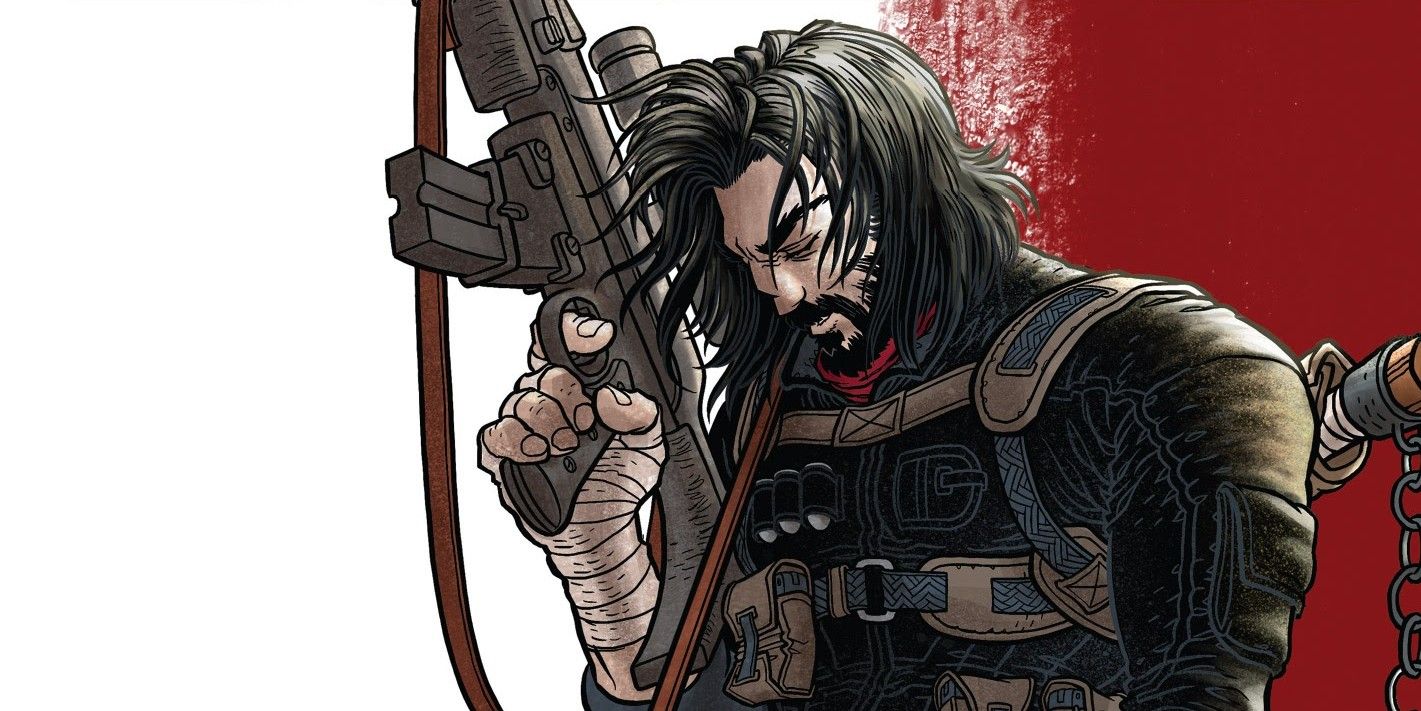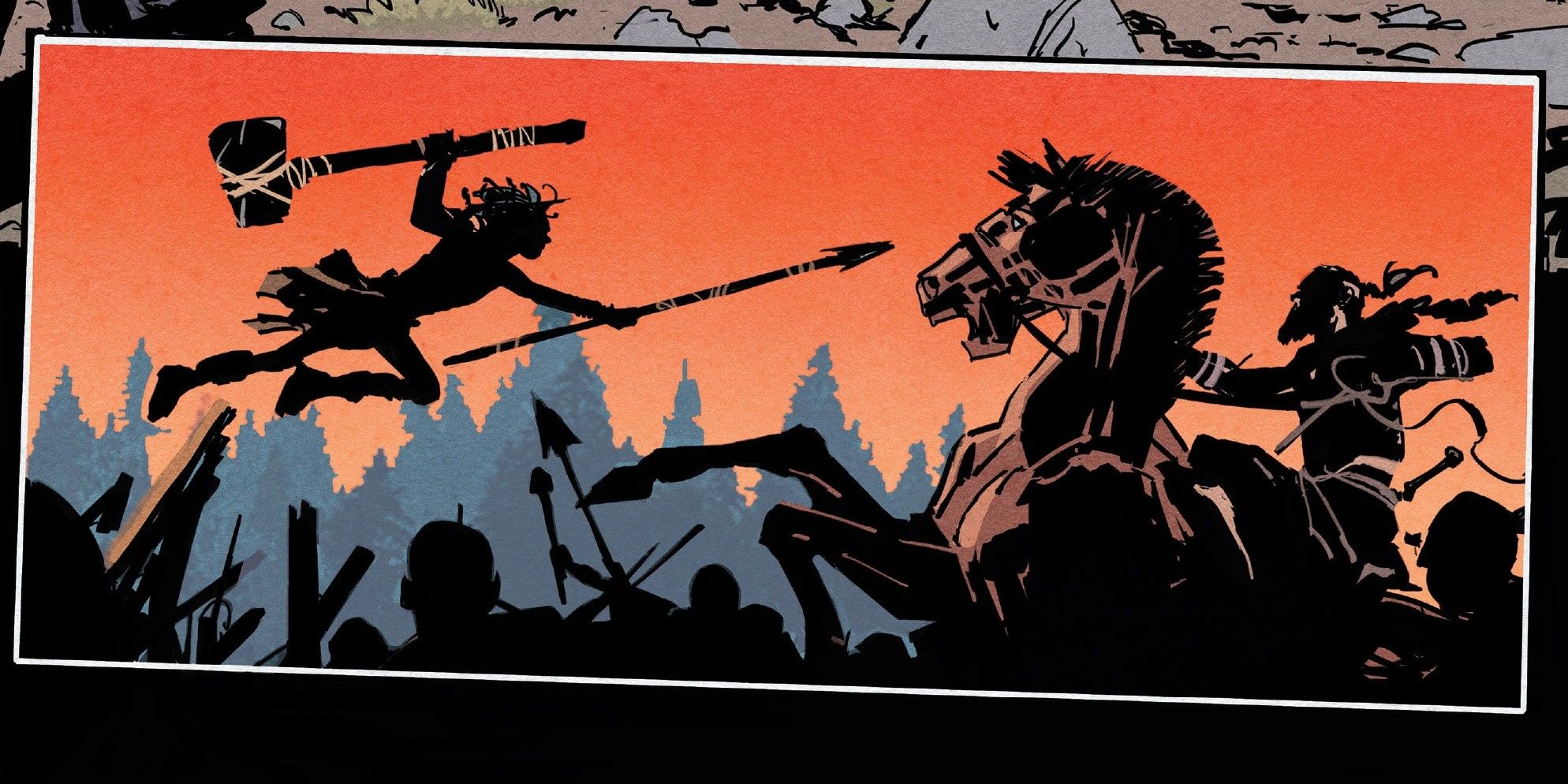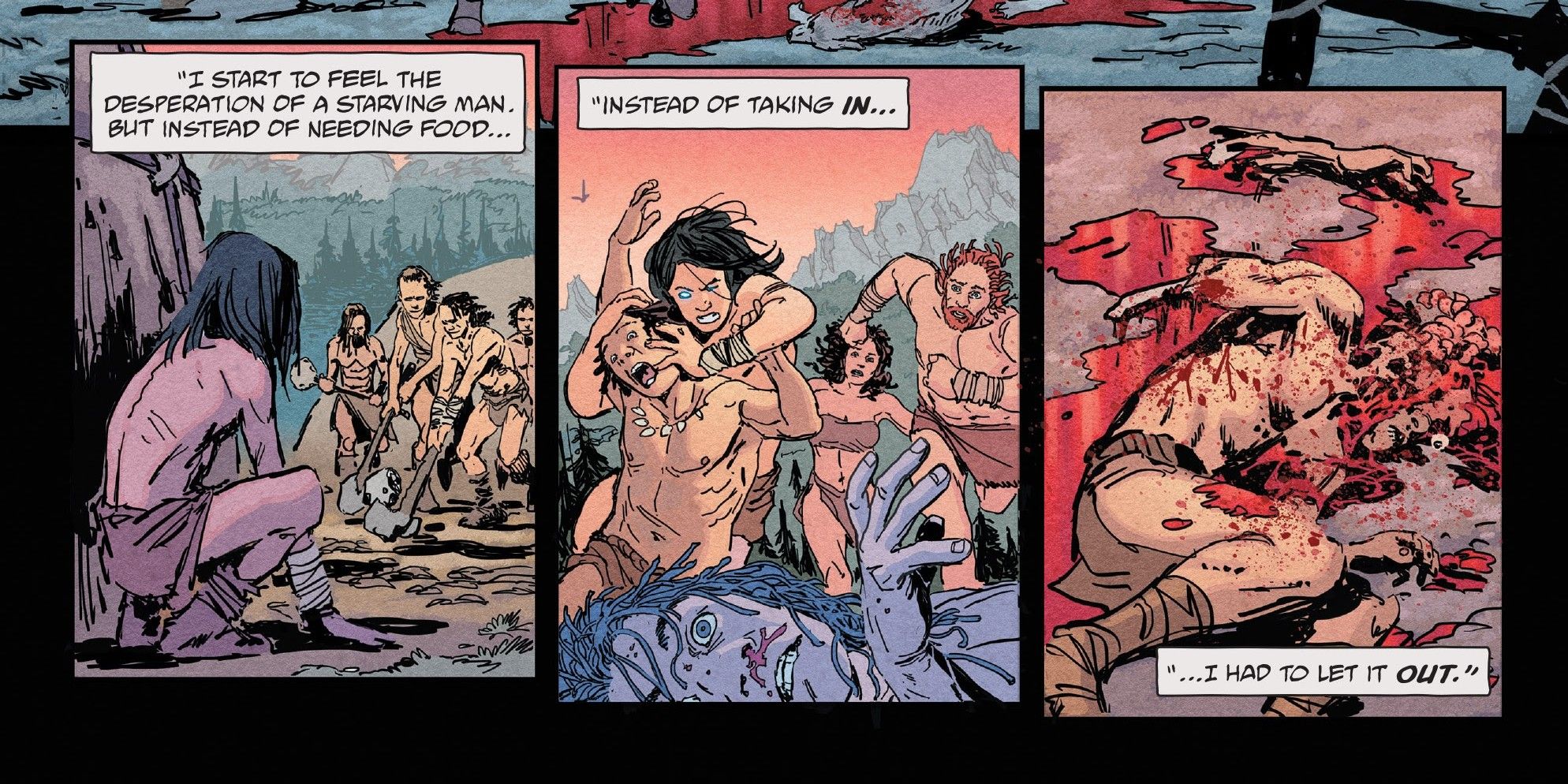Warning: Spoilers ahead for BRZRKR #2, which is a MATURE comic.
Keanu Reeves’ ultraviolent epic BRZRKR is twisting the traditional hero narrative on its head, along with some other, less savory, head twisting. The series is told through the eyes of the mysterious B., a brutal, ruthless 80,000-year-old warrior with impossibly quick powers of regeneration, modeled after Reeves. BRZRKR, written by Reeves and Matt Kindt with art by Ron Garney, is providing subtle yet poignant commentary on one particularly ancient trope of fiction: the monomyth or the traditional hero’s journey. BZRZKR spins the classic hero image on its head, evoking instead a purposefully distorted image of this archetype. In effect, it calls into question whether or not such a thing as a hero can even exist in fiction.
What makes a hero? Since the dawn of storytelling, one principle of the world’s collective cultures’ tales has been consistent: the monomyth. Famously described by Joseph Campbell in his book The Hero With a Thousand Faces, the image of the hero and the stories told of this particular figure since ancient times all seem to share similar characteristics, as well as identical sequences in their adventures, across all walks of life in every part of the world. The story goes that the hero figure arises from their community to struggle against an invading force or tyrannical status quo, entering a new, strange land during their journey, during which they are met with new allies and challenging trials. This sequence eventually culminates in their successful triumph over their opposition, after which they return home victorious. In this way, heroes symbolically represent the positive values of their home communities, and the ability of these values to rise above those forces that oppress them.
As revealed in BRZRKR #2, Reeves’ B. character, born in Stone Age times, distorts this particular archetypical sequence in several ways, both novel and somewhat horrifying. Conceived through a magical ritual in which his parents summon an unknown god to empower their unborn child, B. is created with a purpose: to destroy a band of raiders that perennially attacks their village. In disturbing fashion, the reader is introduced to the tragic repercussions of B.’s supernatural power as, even as a young child, he possesses an insatiable bloodlust, more akin to a ravenous animal than a human child. Seemingly on a whim, he gruesomely kills a group of boys playing a game with his bare hands and later kills the teacher who trained him in fighting and weaponry. Going through accelerated maturation, he finally kills the raiders when they attack two years after he’s born (looking like a young teenager) and thus becomes the hero he was supposed to be.
Even superficially, this is a clear distortion of the traditional hero narrative: a destined savior who is a complete and utter monster, committing atrocities against his own people. Given his shocking belligerence, his village would have likely banished him, or worse, were he not their designated savior. However, taking a step back, the juxtaposition between B.’s origins and the classic hero narrative is even more striking.
Reeves’ image in popular culture is one which resonates with classic “good vs evil” heroism; a known movie star whose personae are no stranger to selflessly battling against impossible odds. Often, he is an everyman hero who fights to save his community. B. on the other hand is no hero: he is an immortal, unstoppable killing machine driven by an unquenchable bloodlust whose very presence among his people conjures the specter of destruction from his hands. Created out of necessity, he strikes a terrifyingly unpredictable figure, whose arguably pure evil tendencies threaten the lives of everyone around him, including his own family.
While B.’s tale remains to be told in full across the 12-issue limited series from BOOM! Studios, one thing is for certain: there will likely be no happy ending. In the monomyth, the hero’s tale usually ends with a return home, but the 80,000-year-old B. has no home to return to. In fact, his overall quest, and his reason for working with the U.S. Government is so that he can find the secret to his immortality, and then, perhaps, finally die. BRZRKR #2 is on sale now.



